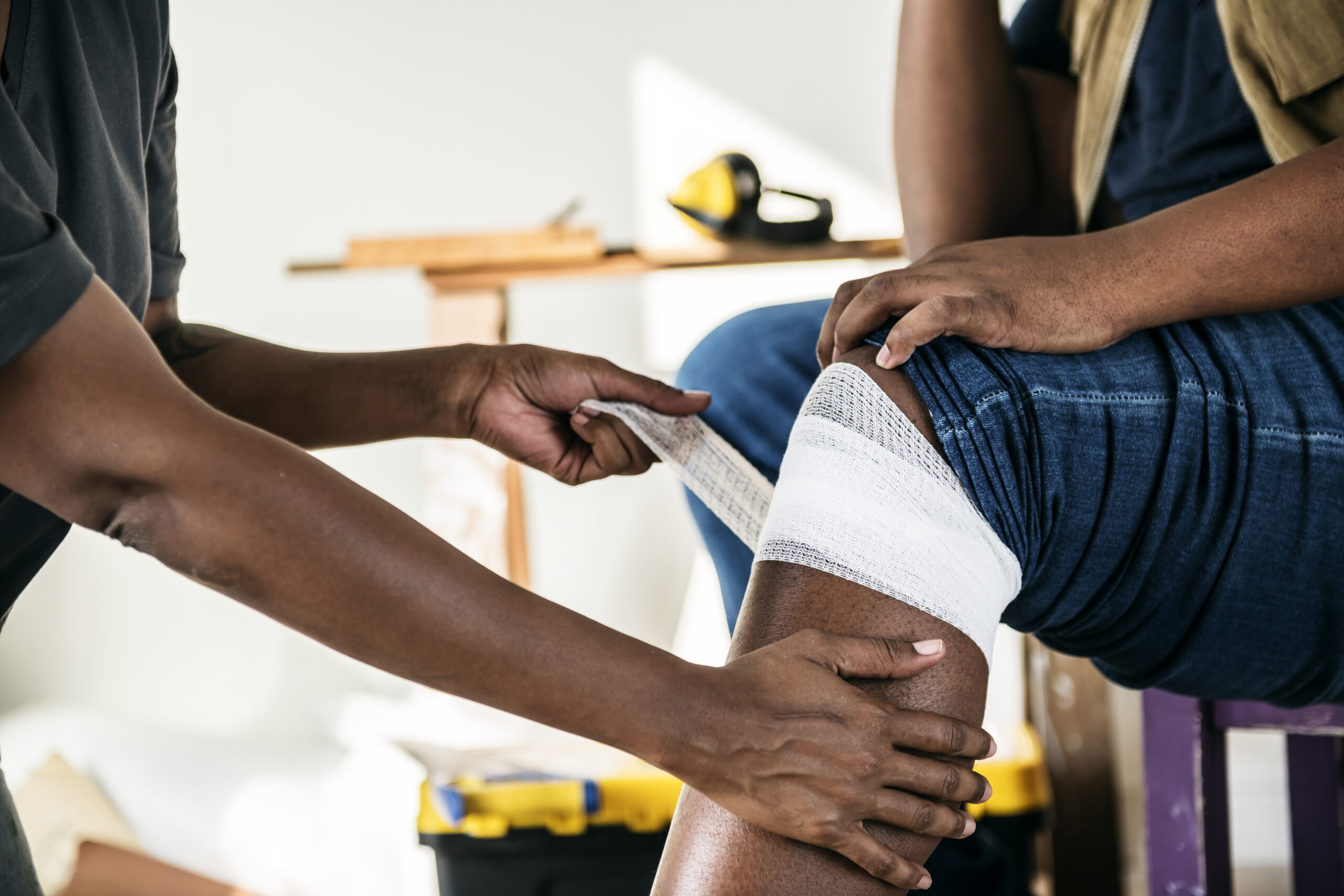Workers Compensation Claim
Filing a Workers Compensation Claim

Worker’s compensation is an accident insurance program paid by employers to provide their workers with medical, rehabilitation, and lost income benefits when they are injured or sickened on the job. These benefits are designed to help employees get back to work in a timely fashion. If a worker dies unexpectedly from a job-related accident, his or her dependents can claim rightful compensation from the New York Workers Compensation Board.
Sometimes the process to file a Workers Compensation Claim in NY is straightforward and simple, able to be handled by employer, employee, and insurers. Other times, the process is much more complex and requires the expertise of an experienced workers compensation lawyer. Aronova and Associates is happy to review your case, free of charge, to let you know what to reasonably expect in the days ahead.
More About Workers' Compensation Claims
How long do you have to file workers comp claim?
Each state has its own statute of limitations and protocols for workers’ comp claims. The Workers Compensation Board urges employees to notify their employers of illness or injury immediately. The employer then has up to 10 days to formally report it on Form C-2 to the Workers Compensation Board and to their compensation insurance carrier. Sick or injured workers should see a doctor (who has been authorized by the Workers Compensation Board) as soon as possible. Additionally, your employer may require you to choose a medical professional in their Preferred Provider Organization.
On-the-job injury or illness: At maximum, on-the-job accidents and illnesses in New York State must be reported to the Workers Compensation Board using form C-2 within 30 days.
Delayed injury or illness: It is also possible to file a workers compensation claim for diseases and delayed injuries within two years from the time you found out (or should have known) about the connection between your injuries and your employment.
Work-related death: Grieving families may file a compensation claim using form C-62 within two years of death. If approved, compensation will be given retroactively, back to the date of death.
How long do you have to be on the job to file?
You may file a worker’s comp claim the first day you are on the job. You are always entitled to medical benefits for job-related illness or injury, even if you do not lose significant time. You must seek medical attention, but you can receive some compensation for as little as a few hours of missed labor.
If you are unable to return to work for more than a week, you are entitled to weekly income benefits. The first weekly installment should be mailed out 15 days after the date of injury. You will not receive the first week of lost time until you have been out of work for 21 days. If you are deemed temporarily totally disabled, you receive two-thirds of your average weekly wage for the past 52 weeks or up to $870.61 per week (as of 2017).
How to file a claim
Seek medical attention and contact your supervisor as soon as you are injured or ill. Notify your employer in writing as soon as possible. The fastest way to file with the Workers Compensation Board is to fill out the web version of the employee claim C-3 form. You can also print out the Employee Claim and mail it to WCB Disability Benefits Bureau at 328 State Street, Schenectady, NY 12305. Any Workers Compensation Board Office would have the forms. Often, employers have the packets available in their offices. Failing to send this paperwork in within 30 days of injury may jeopardize your ability to collect compensation.
Understanding the claims process
Once the workers comp claim process has been initiated by notifying the parties involved and filling out the initial forms, you can expect the following general timeline of events:
Within 48 Hours: See an authorized doctor for a preliminary medical report (form C-4), which must be mailed to the appropriate District Office. Copies should be sent to the employer or insurance carrier, the injured worker, and your attorney if you have one.Within 10 Days: Your employer notifies the Board and its insurance company of the injury.Within 14 Days of Forms Receipt: The insurer must provide the injured worker with a written statement of his/her rights. By this time, your employer should provide you with the name and contact information for the network you must use for diagnostic tests if one exists.Within 18 Days of Forms Receipt: The insurer begins payment of benefits for lost time exceeding seven days. At this time, you should be notified of a disputed claim if one exists.Every Two Weeks: The insurer will continue to make timely benefits payments.Every 45 Days: Your doctor submits progress reports (C-4.2) to the Board.After 12 Weeks: The insurer considers the necessity of further rehabilitation treatment.When you can file a claim appeal?
If your New York workers comp claim is denied, you have up to 30 days to file an appeal of the Board’s decision in writing. A panel of three board members will review your case and decide whether to uphold the judge’s decision or modify it. You will receive notice of the panel’s decision thereafter. If you are still unsatisfied with the decision, you can request a full board review, where all members of the Workers Compensation Board will take a look at your case. They have the right to deny your request if the original panel review was unanimous. The next step is to file an appeal with the Appellate Division of the Supreme Court of New York. You have 30 days from the date of the panel’s decision to appeal. You can appeal the Appellate Division’s decision to the New York Court of Appeals as a last recourse.
How much is it to file a claim?
There are no initial fees to file a claim in New York State. If you lived in a state like South Carolina, filing a workers compensation claim could cost you $25 to request an administrative appeal, but this fee is also waived in New York State. A higher appeal to the Appellate court is another matter. Requesting an appellate decision costs $315 in filing fees, plus the cost of an attorney to prepare the required records.
Do I need a lawyer to file a claim?
You may need a NY workers compensation lawyer if:
Your employer denies your claim.Your claim is rejected by the Workers Compensation Board.Your employer’s settlement offer doesn’t cover lost wages and medical bills.You cannot return to your prior job or perform work due to your medical issues.You receive Social Security Disability benefits, which may take a large portion of your workers comp settlement.You are fired, given a reduced schedule, demoted, or transferred to a position of significantly reduced pay.You have a potential third-party claim against a negligent coworker, parts manufacturer, or contractor.The experienced attorneys at Aronova and Associates will make sure you meet all necessary deadlines, get the medical evidence needed to secure maximum compensation, and avoid common errors that could cost you a lot of money. We will never let you settle for an amount that is less than you deserve. The workers compensation system was designed to give employees prompt and fair reconciliation for their injuries, but the scales often tilt in favor of employers and insurers. If your injuries are severe, it’s in your best interest to call a workers compensation lawyer to help you file your claim and fight for your rights. You pay nothing for legal representation unless we take your case and win you a substantial amount.
Talk to a NY Workers' Compensation Attorney
Issues or questions with a workers’ compensation claim? Not sure where to turn for answers? Aronova & Associates helps thousands of injured workers per year. We’re here for you.
Contact Aronova
Request a Call
Contact Main Form
Contact Us
Ready to Work For You
Aronova & Associates is a firm for all New Yorkers. Our services are available in multiple languages and tailored to the needs of every client. The first step in providing you with the help you need is a free consultation to discuss your case. When you’re ready to talk, we’re ready to get to work for you.
Hours
Mon - Fri 9 AM to 6 PM
Disclaimer: The submission of our contact form does not form an attorney-client relationship. You may not rely upon this information as legal advice.
